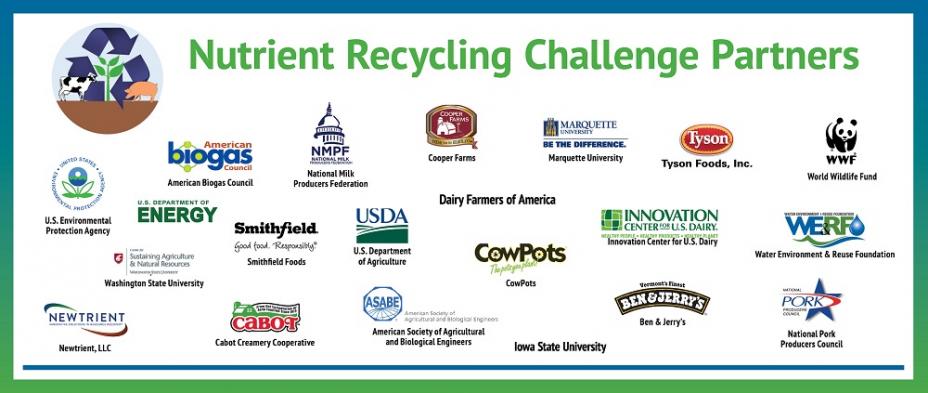Animal Feeding Operations - Technology and Innovation
EPA Memorandum of Understanding with The Water Research Foundation Advancing Nutrient Management Efforts
EPA signed a Memorandum of Understanding (MOU) with The Water Research Foundation (WRF) to accelerate progress on reducing excess nutrients in the nation’s waterways.
The MOU builds on successes achieved through the Nutrient Recycling Challenge, a competition launched by EPA with WRF and others to develop affordable technologies to recycle nutrients from livestock manure. Through the new MOU, EPA and WRF will collaborate with the agricultural community to build capacity and awareness of programs and tools that support watershed and market-based approaches to nutrient management. To accomplish these goals, the MOU aims to:
- Facilitate greater collaborations between the regulated water community, technology developers and providers, and agricultural producers;
- Match innovative manure and nutrient management technologies with on-farm testing sites, funders for technology demonstrations, and third-party evaluators;
- Enable producer-to-producer information exchange regarding technology performance; and
- Develop and disseminate information on specific topic areas related to manure management and resource recovery and reuse.
View MOU between EPA and WRF.
View EPA News Release.
Learn more about what EPA is doing to address excess nutrients at EPA's Nutrient Policy and Data website.
Learn more about WRF.
Nutrient Recycling Challenge
 Nutrient Recycling Challenge Partners: U.S. Department of Agriculture, U.S. Department of Energy, U.S. Environmental Protection Agency, American Biogas Council, American Society of Agricultural and Biological Engineers, Ben & Jerry's, Cabot Creamery Cooperative, Cooper Farms, CowPots, Dairy Farmers of America, Innovation Center for U.S. Dairy, Iowa State University, Marquette University, National Milk Producers Federation, National Pork Producers Council, Newtrient LLC, Washington State University, Smithfield Foods, Tyson Foods, Washington State University, Water Environment & Reuse Foundation, and World Wildlife Fund
Nutrient Recycling Challenge Partners: U.S. Department of Agriculture, U.S. Department of Energy, U.S. Environmental Protection Agency, American Biogas Council, American Society of Agricultural and Biological Engineers, Ben & Jerry's, Cabot Creamery Cooperative, Cooper Farms, CowPots, Dairy Farmers of America, Innovation Center for U.S. Dairy, Iowa State University, Marquette University, National Milk Producers Federation, National Pork Producers Council, Newtrient LLC, Washington State University, Smithfield Foods, Tyson Foods, Washington State University, Water Environment & Reuse Foundation, and World Wildlife Fund
In 2015, EPA partnered with pork and dairy producers, the U.S. Department of Agriculture (USDA), and environmental and scientific experts to launch the Nutrient Recycling Challenge—a competition to develop affordable technologies that recycle nutrients from livestock manure. Every year, livestock producers manage over one billion tons of manure, which contains valuable nutrients—nitrogen and phosphorus—that plants need to grow. Challenge entrants developed technologies that extract nutrients from manure to generate products with environmental and economic benefits that farmers can use or sell.
In Phase I of the competition, EPA received 75 concept papers from around the world, and selected 34 submissions to continue on to Phase II of the challenge, which was a non-competitive incubation program to support innovators as they developed Technology Designs based on their submitted concepts. EPA also awarded a total of $30,000 in cash prizes to the top ten Phase I submissions (four "Winners" and six "Honorable Mentions").
During Phase II in 2016-2017, EPA and its partners supported the 34 selected teams with informational webinars and workshops, opportunities to learn about livestock operations, mentorship, and feedback that can maximize their ability to develop designs for effective and affordable technologies.
To build on the successes of the Nutrient Recycling Challenge, in 2019, EPA signed a Memorandum of Understanding (MOU) with The Water Research Foundation (WRF) to accelerate progress on reducing excess nutrients in the nation’s waterways (see above).
